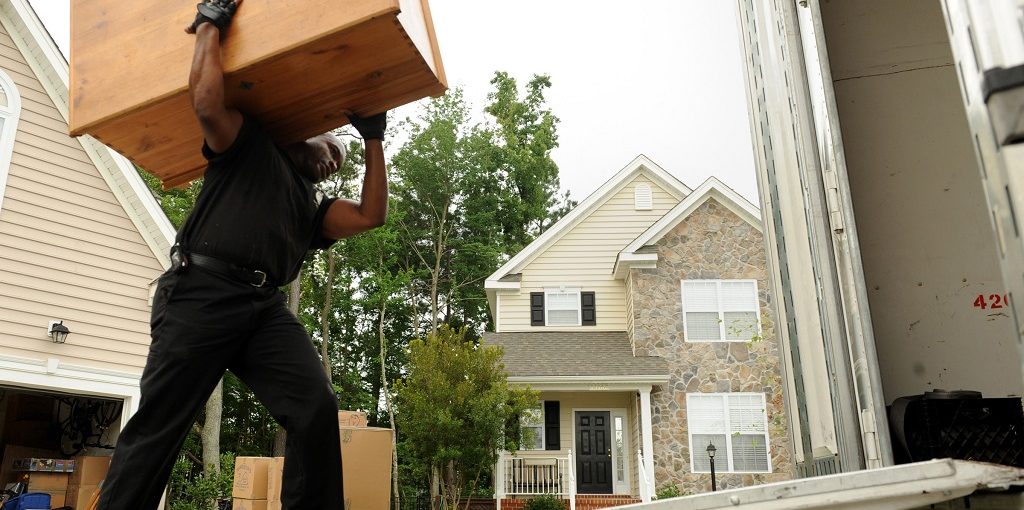How to Pick a Moving Company: 5 Questions You Need to Ask First
Selecting a moving company is one of the big decisions involved with a move. You want a reliable mover to help, but don’t want to get ripped off in the process. Use these five questions to help you find a reputable moving company.
1. Is your company licensed, insured, and bonded?
The moving company should be licensed through the state DOT. If the company provides cross-country moving services, it should be registered with the Federal Motor Carrier Safety Administration (FMCSA). The mover should carry full insurance on its vehicles, its drivers, and on the contents of the truck. Cheap Movers Manhattan – www.cheapmoversmanhattan.com – notes, they should also carry worker’s compensation coverage to protect their workers. Bonding provides protection for customers if the moving company cannot fulfill its contracted service.
2. Can you provide references?
A reputable moving company should have plenty of customers willing to stand as a reference. The mover should be able to provide a reference list on demand. In addition, you should check online reviews to see what others are saying about the company. If the mover cannot supply references, it is a potential red flag. Either the company’s business practices are not that great, or the mover doesn’t care to ask prior clients for them.
When the company provides references, contact each one of them. Ask questions. Did the mover perform the job as described? Was the estimate accurate? Were there any hidden fees? How many people showed up to do the move?
3. What type of liability coverage do you have available?
The federal government requires moving companies to offer at least two types of liability coverage. Basic liability coverage gives you $0.60 per pound, no matter what is being moved. It’s usually included in any estimate you receive from a moving company.
Full value protection is a much better option as it is an extra cost, but well worth it. The movers are liable for any damaged or missing items. You can opt for coverage by value instead of weight. You also have the option of using a third-party insurer for extra coverage.
4. Do you offer binding or non-binding quotes?
Many moving companies will offer you a non-binding estimate. The company bases its estimates off the amount of items you are having moved, the estimated time to complete the move, and how many movers would be required. If any of those variables differ from the estimate, your costs can go up significantly.
The better choice is to go with a company that offers a binding written estimate. The mover will come on-site to provide the estimate. You will need to provide all details such as parking restraints, stairs, obstacles, etc. Make sure to indicate any services you might need such as packing or moving heavy items like a piano or oversize aquarium.
5. What do you consider extra services and how much do they cost?
Moving companies often provide extra services to their customers. It’s important to understand what they offer and how much it is. While having the moving company do the packing for you is handy, it does cost you extra.
Each of these questions will help you determine what moving company to use. Taking the time to properly screen the movers will ensure your move goes without any surprises.
Five Things to Keep in Mind When Moving Into A Smaller Home
According to a survey by Trulia, 60% of Americans would rather move from their large homes to small homes. There has been an increase in the preference for smaller spaces in America. If you are one of those people thinking about moving to a smaller home, you should know the following: 1. You Will Have
Everything to Know About Choosing a Mover and Getting an In-Home Estimate
Moving out of the state is a huge and challenging project. In addition to the fact that you practically have to leave everything which is familiar to you behind and start over, there is also the practical part of the move. If you do not strategize well for the move, the stress that you have to deal with throughout the entire process becomes magnified. Here is a guide on how to plan your out of state move, and the importance of great preparation beforehand.
Getting a moving company
An out of state move is a process which will take at least a day to accomplish. It also comes with its unique challenges such as border regulations, which you may not be able to deal with even if you had a vehicle with the capacity to handle all your belongings. It is, therefore, a smart idea to hire a competent interstate moving company to help you handle the transition in a stress-free way. Ask friends for recommendations, and then search online for companies which have a good reputation and positive customer reviews. Before you make tome for a face to face interview:
- Check to see if the company has all the required licenses and registration.
- Make sure that the company has insurance coverage so that in case of any accidents or incidents, your valuables will be compensated.
- Check their availability in the dates that you would wish to make a move.
When a company checks out on these requirements, you can arrange a one on one meeting.
Schedule an in-home estimate
An in-home estimate is the best way for the company to figure out how much furniture and household items they will be expected to haul across the state, and the fragility of each one of the pieces. Most genuine and competent moving companies provide this estimate free. When preparing for an estimate:
- Take inventory of your furniture
- Label the items which you will be taking with you clearly
- If possible, separate what you will not be taking with you
When the company comes in for the estimate, allow them to look into all of the rooms to see what they will have to carry and what will be left. There are some factors that will affect the final estimate, when they give it to you, ask them to explain the estimate.
Determining service requirements
It is also important to make sure that you understand all other service requirements which could be part of your moving cost. Some of these service requirements include:
- Packing and unpacking assistance
- Short-term storage
- Crating
- Piano, antique and fragile appliances moving
- Furniture disassembly and re-assembly.
Ask the movers whether they charge extra for these items, or it comes included in the cost. In case these items are not listed on the website, ask a representative of the company about them. Finally, take your time when planning and executing the move because better planning will mean better results and fewer complications or losses in the move.
Moving Checklist for Planning Your Denver, CO Relocation
Moving cross-country differs from moving across the city or county. There will be no driving to the old neighborhood to get papers or notify someone of the move. Moving to Denver will take careful planning and lots of footwork. Ready? Let’s roll! Eight Weeks Out Employ a real estate agent in Denver to locate a





